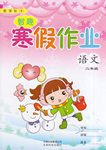题目内容
Recently the barbican museum in London held an exhibition called the rain room. During the time this exhibition was open, my twitter stream was filled with photos of people standing in the rain room, accompanied by the caption “rain room@ the barbican!” and a location attachment to prove that they were indeed in the rain room.
This got me thinking. What were people actually saying by Tweeting about their visit? I think all they were doing was fulfilling the obligation that we have to share. Not sharing in the sense of treasuring a moment with people close to us, but sharing in the sense of “tell the world that I am doing a thing”.
It’s not sharing; it’s showing off. When we log in to Facebook or Twitter we see an infinitely updating stream of people enjoying themselves. It’s not real life, because people only post about the good things whereas all the dull or deep stuff doesn’t get mentioned. But despite this obvious fact, it subconsciously makes us feel like everyone is having a better time than us.
This is the curse of our age. We walk around with the tools to capture extensive data about our surroundings and transmit them in real-time to every friend we’ve made. We end up with a reduced understanding of reality because we’re more concerned about choosing a good Instagram filter(过滤器) for our meal than how it tastes.
I don’t think that it’s inherently wrong to want to keep the world updated about that you’re doing. But when you go through life robotically posting about everything you do, you’re not a human being. You’re just a prism that takes bits of light and sound and channels them into the cloud.
The key thing to remember is that you are not enriching your experiences by sharing them online; you are detracting from them because all your efforts are focused on making the look attractive to other people. Once you stop seeing things through the eyes of the people following you on Twitter or Facebook or Instagram, you can make your experiences significant, because you were there and you saw the sights and smelled the smells and heard the sounds, not snapped a photo of it through a half-inch camera lens.
1.What do we learn from the first two paragraphs?
A. Rain Room exhibition received a large audience in London.
B. Most of people feel obligated to share their experience with friends.
C. Many people want to inform others of their experience by Tweeting.
D. All people having gone to the Rain Room took pictures.
2.It seems to the author that ___________.
A. Facebook or Twitter is a good place where we share personal experience
B. people seldom show depressing stuff on the social networking websites
C. most of people tend to show off that they are having a better time than others
D. sharing experience on the social networking websites is not real life
3.By talking of “a good Instagram filter for our meal” (Line 3-4, Para.4), the author wants to show _____________.
A. we are surrounded by various tools to capture our daily data
B. we are more concerned about how our life seems to be to others
C. we transmit our experience immediately to everybody we know
D. we gain more extensive perception of reality with digital tools
4.What suggestion does the author give in the last paragraph?
A. Enrich your experiences by sharing them online.
B. Make efforts to make your life attractive to others.
C. Stop showing your personal experience.
D. Record the details of what you see, smell and hear.
1.C
2.B
3.B
4.C
【解析】
试题分析:本文主要讲述了英国伦敦的芭比肯美术馆举办一次展览。在展览举办期间,我的Twitter挂满了在雨屋中的人,我由此而思考,人们大声说明自己这次参观,这样做的目的是什么?作者认为人们这样做的目的只是为了告诉世界自己在做什么,而不是和亲近的人享受珍贵的时刻。而且这不是分析,而是在炫耀,因为他们只是展示好的一面,而不好的方面,不会展示。
1.
2. not real life, because people only post about the good things whereas all the dull or deep stuff doesn’t get mentioned.意思是:这不是真正的生活,因为人们仅仅张贴一些好的事情,然而所有的灰暗的或者复杂的事情,却没有提到。可知人们很少在社交网站上提及令人沮丧的事情。故选B。
3. end up with a reduced understanding of reality because we’re more concerned about choosing a good Instagram filter(过滤器) for our meal than how it tastes.意思是:我们以对生活不足的理解而结束,因为我们更关心为晚餐选择一个好的过滤器,而关心晚餐的味道如何。可知人们我们更加关心我们的生活对别人来看是什么样子的。故选B。
4. key thing to remember is that you are not enriching your experiences by sharing them online意思是:关键的事情是记住在网上分享经验并没有丰富你的个人经验。可知作者给予人们的建议是停止显示个人经验。故选C。
考点:考查议论文阅读。

 智趣寒假作业云南科技出版社系列答案
智趣寒假作业云南科技出版社系列答案